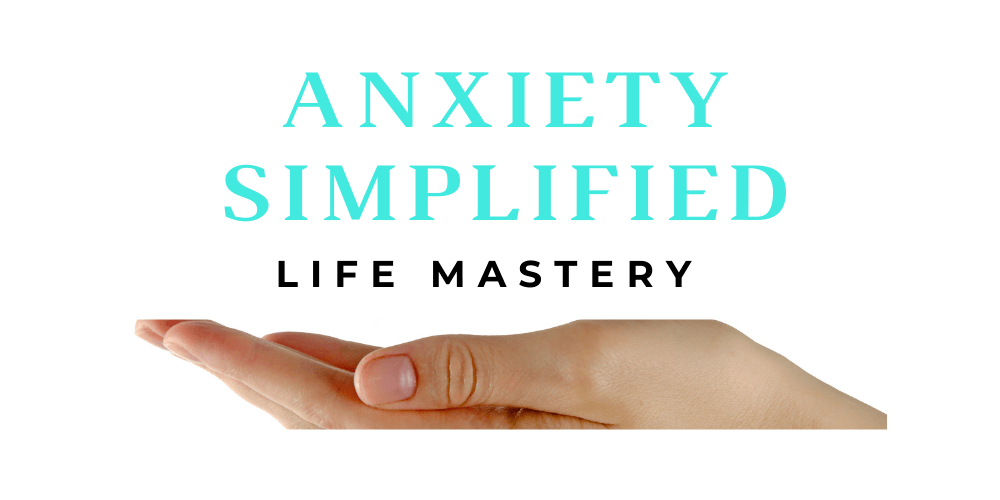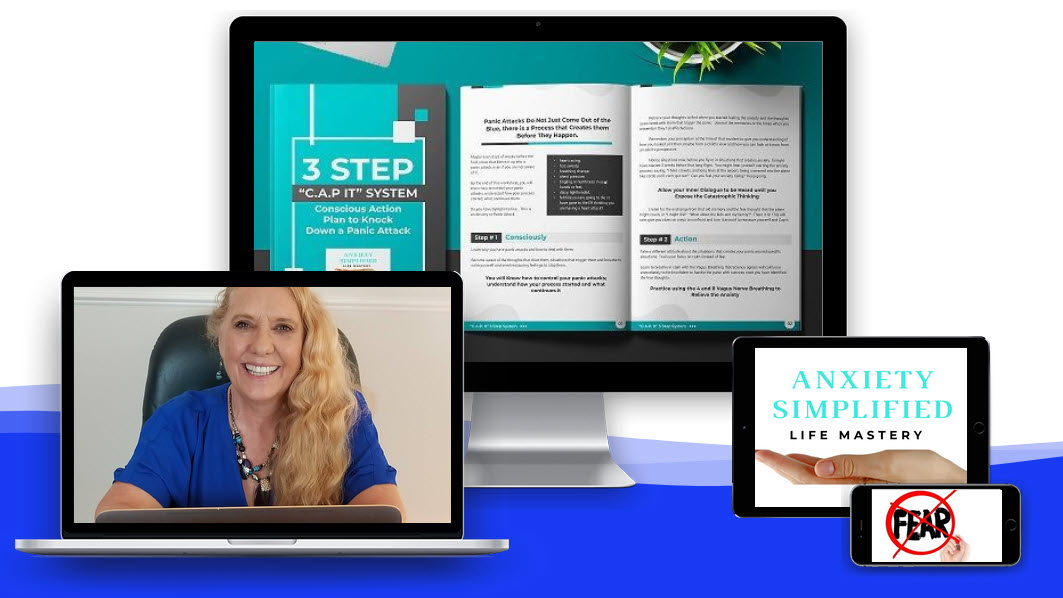So, can you pass out from a panic attack? YES, it is possible, like in the movies of getting the “vapors”. Fainting is usually a result of extreme anxiety or shock. While it does not happen as often with panic attacks, feelings of imminent fainting are very common.
Most faintness feelings associated with panic attacks are triggered by changes in breathing patterns. Actually, fainting is also possible, depending on the symptoms that a person manifests during panic episodes.
If you have experienced a panic attack before, it is important to learn everything possible about your anxiety to help you learn how to address feelings that you are about to faint.
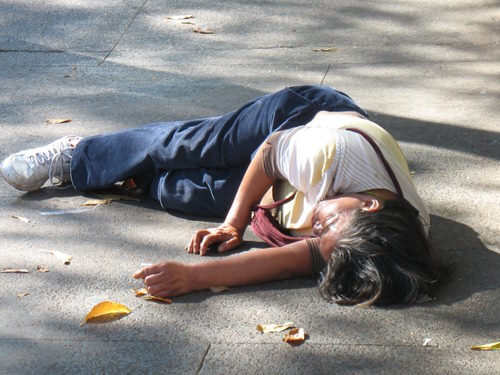
1
Panic Attacks and Anxiety-Induced Fainting
Anxiety and panic produce a wide range of terrifying symptoms. Some of these symptoms lead people to believe that they are experiencing something more serious that requires medical attention. It's not uncommon to feel like fainting during a panic attack, and if it becomes too severe, if you faint and hit your head.
Can you pass out from a panic attack? If so, why does it happen? This post will delve into these issues.
Stop Panic Attacks Now
This course is video based to be able to re listen to over and over again with a workbook to follow again or reuse you conquer one trigger you can see your progress to feel you can do this!
2
The Consequences of Panic
A doctor should be a part of your treatment providers that diagnose the cause of your fainting, and it is dangerous to diagnose yourself online, since there could be underlying conditions beyond anxiety causes fainting, such a low blood pressure. Consult your doctor, but keep in mind that anxiety and fear are very typical causes of feeling faint.
True fainting is quite uncommon in panic attacks. But panic attack fainting does happen, and there are reports of it happening to some people who have a genuinely severe panic attack, but the likelihood is quite low. If you genuinely faint and black out, seek medical attention.
To reiterate, panic attacks might result in fainting. Some people have fainted as a result of extreme stress. Panic attacks produced by phobias can undoubtedly result in fainting, albeit they differ slightly from classic panic attacks experienced by persons suffering from panic disorder. There are several conditions that can cause fainting. It's just that people who suffer from panic attacks rarely reach that point.

3
What Causes Fainting or Fainting Feelings
Now, let's go over some of the conditions that can contribute to fainting or, more commonly, the feeling that you're about to faint. While fainting is uncommon, feeling like you're ready to faint anytime is extremely common, like feeling dizzy or lightheaded, weak in the knees and need to sit down.
In reality, dizziness, lightheadedness, and weakness (all of which you feel when you're about to faint) are incredibly common symptoms of panic attacks, so much so that people who don't realize they're having one may believe that they're having a heart attack, instead or worse, that they're about to pass out. The causes of this sensation can be complex, but the most typical ones are the following:
Hyperventilation
Hyperventilation is the most prevalent cause of fainting sensations, and it can trigger fainting in a panic attack. Hyperventilation is caused by breathing too quickly or inefficiently inhaling too much carbon dioxide in through your mouth instead of breathing in through your nose first. Hyperventilation constricts blood vessels, particularly those in your brain, making you feel dizzy, weak, and tired. This is the most common cause why people pass out during panic attacks. Breathing in through the nose, gets oxygen directly to your brain and will help to calm you.
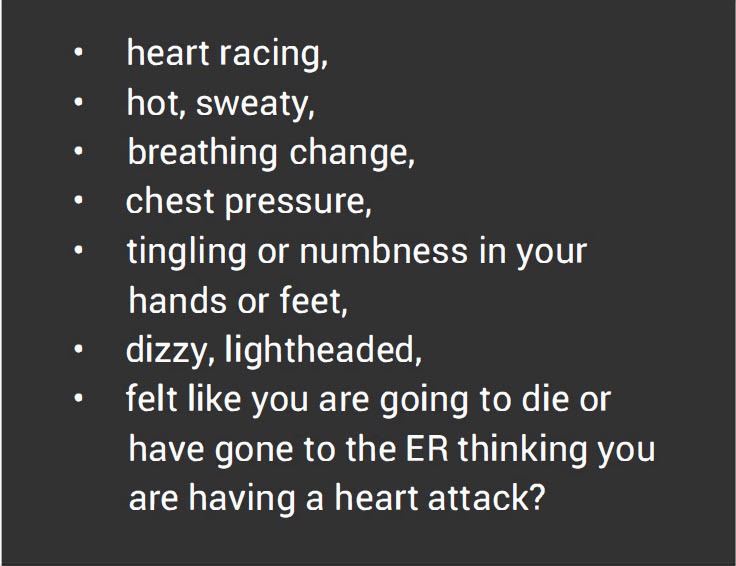
Adrenaline
Adrenaline may not always induce lightheadedness and fainting, but it does raise the heart rate, cause tunnel vision, and can make the body seem as if it is floating on air. Adrenaline is the chemical that causes anxiety, and some of the symptoms of adrenaline surges paired with intense fear can make you feel as if you're going to pass out.
Brain Shutdown
Anxiety and terror overwhelm the brain, causing it to shut down. Some portions of your brain actually shut down (or slow down) during a panic episode, because we cannot think and feel at the same time. If your emotions are high, you are not thinking logically. It's conceivable that your mind isn't working well throughout this procedure, which could lead to sensations similar to fainting.
Sensitivity
It's also worth noting that a heightened sensitivity to physical sensations is a symptom of panic episodes. Those suffering from panic disorder tend to experience symptoms more intensely than those who do not suffer from the condition. For example, if someone who is not anxious rises up too quickly and feels lightheaded, they shrug it off and it goes away. When someone suffering from anxiety has the same lightheadedness, the sensation is intensified and frequently causes greater anxiety, which causes even more panic.
These are the reasons why you may feel like you're ready to pass out during a panic attack, and in rare situations, these are the difficulties that may cause you to pass out. However, in most cases, they just induce severe physical symptoms that mirror near-fainting, which is why many people dread the possibility of fainting in the future.
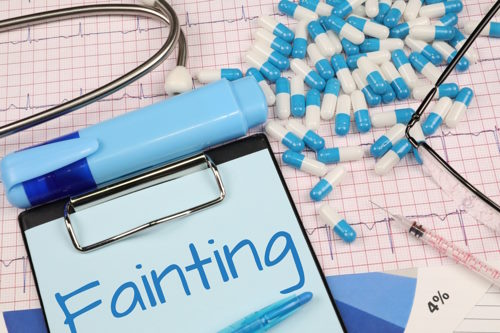
4
How to Prevent Fainting
Once a panic episode begins, it is significantly more difficult to control. To lessen hyperventilation symptoms, what you can do is make sure you're breathing properly. Remember that hyperventilation is caused by an imbalance of carbon dioxide and oxygen. Breathe slower and in through your nose and out your mouth.
So, resist the impulse to take quick, deep breaths. At the same time, don't hold your breath because it can cause a sudden change in blood pressure, which can contribute to additional symptoms. Instead, considerably slow down your breathing by doing the following:
Breathing is our bodies #1 way to relax.
Learn the medically proven 4 and 8 Vagus Nerve breathing that sends a calming chemical into your body to calm you immediately. Check out Joanne’s Podcast with the medical researched explained. Anxiety Simplified Podcast # 46 iTunes on. 7 ways to Go from fight-or-flight into rest-and-digest within minutes told by scientists.
Slowing your breathing ensures that you are getting enough oxygen and carbon dioxide. It won't get rid of all of the symptoms of hyperventilation - once they start, but gives you a chance to at least reduce some of them so that they don't worsen.
You should also take steps to reduce the severity and frequency of your anxiety attacks, because panic attack fainting is easier to prevent than it is to stop once it has begun.
Final Word
Anxiety can cause fainting, although panic attacks are more likely to cause it. Those who faint or experience fainting during panic attacks usually do so as a result of hyperventilation, fast adrenaline, or vasovagal syncope. Controlled breathing will help with any hyperventilation concerns, and anxiety reduction will keep this feeling from happening again.
Try these ways to intervene next time so you never pass out from a Panic attack. Knowing steps to use can be really beneficial.
Stop Panic Attacks Now
This course is video based to be able to re listen to over and over again with a workbook to follow again or reuse you conquer one trigger you can see your progress to feel you can do this!
Click this link to take your first steps out of having panic attacks forever. Take a >Video 3 Step Course on how to Crush Panic Attacks with Joanne Williams, LCSW< Learn from a 30-year mental health professional. In this course, the 2nd step teaches the Vagus breathing, to get that immediate calming.
However, if your panic episodes become regular or interfere with your life, it is a good idea to seek professional care. You can then concentrate on learning how to calm down after a panic attack, better managing them, and coping with the associated worries.
Contact Joanne Williams for a free 10-minute consultation on you best next step at 760-485-6784.
Disclaimer: This article is by no means a replacement for medical attention
